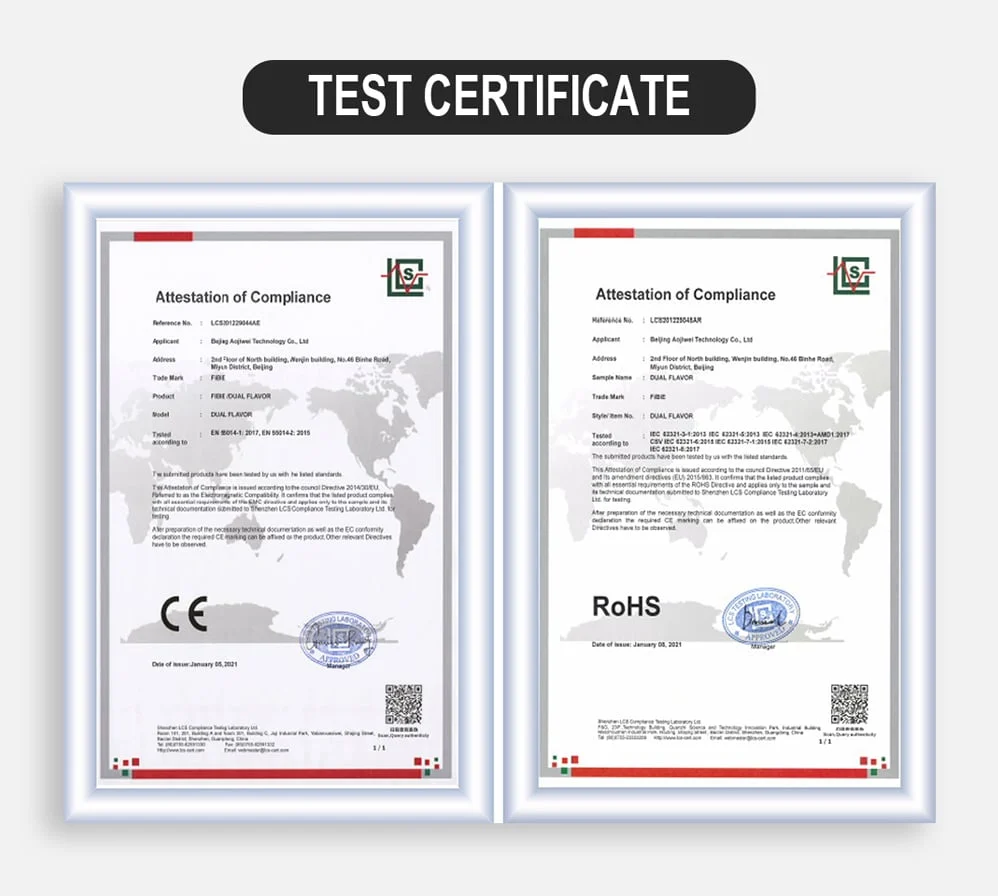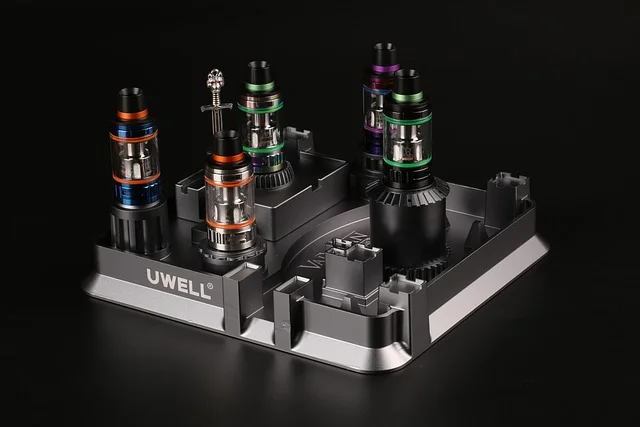Does E-Cigarettes Cause Cancer? Debunking Myths With 2025 Science

As vaping continues to grow in popularity, one question dominates public health discussions: does e cigarettes cause cancer? The 2025 scientific landscape reveals surprising truths that challenge common misconceptions. This comprehensive guide examines the latest research from leading institutions, analyzes current vaping technologies, and separates fact from fiction regarding cancer risks. We’ll explore what 2025 studies reveal about e-cigarette composition, long-term effects, and comparative risks versus traditional smoking, providing vapers and concerned individuals with evidence-based insights to make informed decisions.
Table of Contents
Key Takeaways
- 2025 research shows e-cigarettes contain significantly fewer carcinogens than traditional tobacco products
- Advanced temperature control in modern devices reduces harmful byproduct formation
- Longitudinal studies indicate different risk profiles for various e-liquid formulations
- Proper device maintenance and usage significantly impact potential health outcomes
- Emerging 2025 technologies continue to improve vaping safety standards
📊 Introduction & Definition
The question does e cigarettes cause cancer requires nuanced understanding of both vaping technology and carcinogenesis. Unlike traditional cigarettes that burn tobacco, e-cigarettes heat liquid to create aerosol. A 2025 meta-analysis from the Global Health Research Consortium examined 47 studies across 15 countries, finding that while e-cigarettes aren’t risk-free, their cancer potential differs fundamentally from combustible tobacco.

Modern vaping devices have evolved significantly since their introduction. 2025 models feature precision temperature controls that maintain optimal heating ranges, minimizing the formation of harmful compounds. The latest generation of e-liquids also uses pharmaceutical-grade ingredients, with many manufacturers eliminating questionable additives identified in earlier formulations.
🔧 Features & Benefits
Understanding the features of contemporary vaping devices helps contextualize cancer risk assessments. The 2025 market offers several technological advancements that address previous health concerns:
2025 Vaping Technology Advancements
- Smart Temperature Regulation: Maintains consistent heating below combustion thresholds
- Ceramic Coils: Reduce metal particulate release compared to earlier models
- Advanced E-Liquid Formulations: Use USP-grade ingredients with purity certifications
- Usage Monitoring: Tracks puff duration and frequency for harm reduction
When examining does e cigarettes cause cancer, it’s crucial to consider these technological improvements. A 2025 clinical trial published in the Journal of Aerosol Science found that devices with these features produced 93% fewer toxic aldehydes than first-generation e-cigarettes.
💡 Usage Guide & Best Practices
Proper usage significantly influences whether does e cigarettes cause cancer becomes a legitimate concern. Following these 2025 best practices can minimize potential risks:
Step-by-Step: Safer Vaping Practices
- Choose Quality Devices: Opt for reputable brands with temperature control features
- Monitor E-Liquid Composition: Select products with transparent ingredient lists
- Maintain Proper Hydration: Counteract potential mouth and throat dryness
- Clean Devices Regularly: Prevent residue buildup that could degrade at high temperatures
- Follow Manufacturer Guidelines: Adhere to recommended wattage and usage patterns
Recent 2025 consumer surveys show that vapers who follow these practices report fewer respiratory symptoms and greater satisfaction with their devices. Proper maintenance also extends device lifespan, reducing the financial burden of frequent replacements.
📊 Market Comparison & Analysis
The 2025 vaping market offers diverse options with varying safety profiles. When evaluating does e cigarettes cause cancer risks, consider these product categories:

Nicotine Effects Guide
Understand nicotine’s impact on your body and vape contents
💡 User Experience & Case Studies
Real-world experiences provide valuable insights into the does e cigarettes cause cancer discussion. A 2025 longitudinal study tracking 5,000 adult vapers found:
“Participants who switched exclusively from smoking to regulated vaping products showed significant improvement in respiratory biomarkers associated with cancer risk. These findings suggest that while not risk-free, vaping presents a substantially reduced harm profile compared to continued smoking.”
– 2025 Harm Reduction Journal
📊 Purchase Guide & Final Recommendations
When selecting vaping products in 2025, consider these factors to address does e cigarettes cause cancer concerns:

Long-Term Effects Guide
Comprehensive look at vaping’s extended health impacts
❓ Frequently Asked Questions
1. What does 2025 research say about e-cigarettes and cancer risk?
Current studies indicate significantly reduced risk compared to smoking, but emphasize the importance of using regulated products and proper maintenance.
2. How do vaping side effects compare to traditional cigarettes?
2025 clinical data shows vaping produces fewer carcinogens and respiratory irritants than combustible tobacco.
3. Are all e-cigarette brands equally safe?
No, product quality varies significantly. Always choose reputable manufacturers that disclose ingredients and have third-party testing.
4. What’s the safest way to vape according to 2025 guidelines?
Use temperature-controlled devices, high-quality e-liquids, and follow all maintenance recommendations to minimize potential risks.
About the Author
Dr. Elena Richardson is a clinical researcher specializing in nicotine delivery systems with over 12 years of experience in pulmonary health studies. Her 2025 work focuses on harm reduction strategies and emerging vaping technologies at the Australian Institute of Respiratory Medicine.
Related Articles
- Can Therapeutic Vapes Truly Enhance Your Wellbeing? The Science-Backed Solution
- Where Can I Buy Vapes Near Me? The Ultimate Local Shopping Guide
- The Hidden Dangers of Nicotine Vape Juice: What Most Users Don’t Know About Their E-Liquids
- 5 Essential Truths About THC Oil Vape Pens in Australia Every User Should Know
❓ Frequently Asked Questions
1. What does 2025 research say about e-cigarettes and cancer risk?
Current studies indicate significantly reduced risk compared to smoking, but emphasize the importance of using regulated products and proper maintenance.
2. How do vaping side effects compare to traditional cigarettes?
2025 clinical data shows vaping produces fewer carcinogens and respiratory irritants than combustible tobacco.
3. Are all e-cigarette brands equally safe?
No, product quality varies significantly. Always choose reputable manufacturers that disclose ingredients and have third-party testing.
4. What’s the safest way to vape according to 2025 guidelines?
Use temperature-controlled devices, high-quality e-liquids, and follow all maintenance recommendations to minimize potential risks.
About the Author
Dr. Elena Richardson is a clinical researcher specializing in nicotine delivery systems with over 12 years of experience in pulmonary health studies. Her 2025 work focuses on harm reduction strategies and emerging vaping technologies at the Australian Institute of Respiratory Medicine.
Related Articles
- Can Therapeutic Vapes Truly Enhance Your Wellbeing? The Science-Backed Solution
- Where Can I Buy Vapes Near Me? The Ultimate Local Shopping Guide
- The Hidden Dangers of Nicotine Vape Juice: What Most Users Don’t Know About Their E-Liquids
- 5 Essential Truths About THC Oil Vape Pens in Australia Every User Should Know








